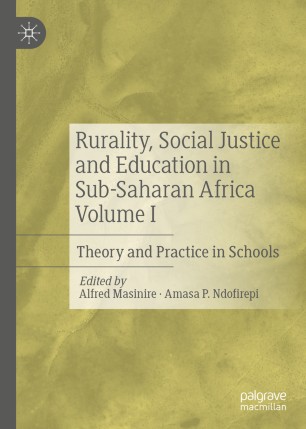

Most ebook files are in PDF format, so you can easily read them using various software such as Foxit Reader or directly on the Google Chrome browser.
Some ebook files are released by publishers in other formats such as .awz, .mobi, .epub, .fb2, etc. You may need to install specific software to read these formats on mobile/PC, such as Calibre.
Please read the tutorial at this link. https://ebooknice.com/page/post?id=faq
We offer FREE conversion to the popular formats you request; however, this may take some time. Therefore, right after payment, please email us, and we will try to provide the service as quickly as possible.
For some exceptional file formats or broken links (if any), please refrain from opening any disputes. Instead, email us first, and we will try to assist within a maximum of 6 hours.
EbookNice Team

Status:
Available0.0
0 reviewsThis book explores rurality and education in sub-Saharan Africa through a lens of social justice. The first in a two-volume project, this book explores the possibilities and constraints of rural social justice in diverse educational contexts: how should rurality be defined? How does education shape and reshape what it means to be rural? Drawing chapters from a diverse range of contributors in sub-Saharan Africa, the two volumes are underpinned by a robust social justice approach to rural schooling and its intersections with access, gender, colonialism, social mobility and dis/ability. Ultimately, these volumes reflect the need to shift conceptions of rurality from colonial and conservative stereotypes to an appreciation of rurality as locations in space and time, with their own unique attributes and opportunities. Harnessing indigenous African concepts of justice to open up conversations into teaching and knowledge production in higher education, this book will be of interest to scholars of rurality and education, as well as wider discussions on decolonising the academy.